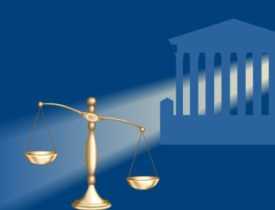Description
Course Name: Certificate in Public Administration
Course Id: CPA/Q1001.
Eligibility: 10+2 Grade (higher Secondary) or Equivalent.
Duration: Three Months.
Objective: To train students in governance, administrative practices, and public sector management, preparing them for roles in government agencies, NGOs, and policy-making bodies.






Debit/Credit Card, Wallet, Paytm, Net Banking, UPI, or Google Pay.



• A soft copy (scanned) of your certificate via email within 7 days of examination.
• A hard copy (original with official seal and signature) sent to your address within 45 day of declaration of result.

Online Examination Detail:
Duration- 60 minutes.
No. of Questions- 30. (Multiple Choice Questions).
Maximum Marks- 100, Passing Marks- 40%.
There is no negative marking in this module.
| Marking System: | ||||||
| S.No. | No. of Questions | Marks Each Question | Total Marks | |||
| 1 | 10 | 5 | 50 | |||
| 2 | 5 | 4 | 20 | |||
| 3 | 5 | 3 | 15 | |||
| 4 | 5 | 2 | 10 | |||
| 5 | 5 | 1 | 5 | |||
| 30 | 100 | |||||
| How Students will be Graded: | ||||||
| S.No. | Marks | Grade | ||||
| 1 | 91-100 | O (Outstanding) | ||||
| 2 | 81-90 | A+ (Excellent) | ||||
| 3 | 71-80 | A (Very Good) | ||||
| 4 | 61-70 | B (Good) | ||||
| 5 | 51-60 | C (Average) | ||||
| 6 | 40-50 | P (Pass) | ||||
| 7 | 0-40 | F (Fail) | ||||







Who Should Enroll?
- Graduates aiming for a career in public service, governance, or policy-making.
- Working professionals in government or non-governmental organizations seeking to enhance their administrative skills.
- Individuals interested in contributing to public sector reforms and development.
Syllabus
Introduction to Public Administration: Overview of Public Administration, History and development of Public Administration, Theories and principles of Public Administration, The role of government in the administration, Public and private sectors’ distinction
Public Policy and Planning: Concept of public policy, Public policy formulation and implementation, Planning and development strategies. Analysis and evaluation of public policies
Public Management and Organization: Principles of management in public sector, Organizational structure of government, Public sector leadership and decision-making, public administration ethics and values
Governance and Administrative Law: Principles of governance, Administrative law and its role in public administration, Governmental accountability and transparency, Civil service and public employment law
Human Resource Management in Public Administration: Recruitment, training, and development in public service, Public sector motivation, compensation, and welfare, Performance management and evaluation, Leadership styles in public administration
Financial Management in the Public Sector: Budgeting and public financial management, financial accountability and auditing, public expenditure control and analysis, Revenue generation and fiscal policy.
Job Opportunities after Certificate in Public Administration Course:
Graduates of the Certificate in Public Administration (CPA) program can explore a variety of career options in the public and government sectors, as well as non-governmental organizations (NGOs) and international agencies. Some potential career paths include:
- Government Officer (Civil Services)
- Public Administration Consultant
- Policy Analyst
- Urban Planner
- Public Relations Officer
- Municipal/Local Government Administrator
- Project Manager (Government Projects)
- Public Sector Undertaking (PSU) Executive
- NGO Coordinator/Manager
- Researcher/Academic in Public Administration
- Public Affairs Specialist
- Social Welfare Officer
These roles are available in government departments, public sector undertakings, NGOs, think tanks, research institutions, international organizations (such as the UN), and various public service-oriented bodies. Graduates can work in policy planning, governance, administration, and community development.
The salary range for graduates of the Certifiacte in Public Administration (DPA) can vary depending on the sector (government, public, private, or NGO) and role, as well as the level of experience. Here’s a general overview:
- Entry-level (0–2 years): ₹3–6 LPA
- With Experience (3–5 years): ₹6–12 LPA
- Senior-level (5+ years): ₹12–20 LPA or more, especially for roles in senior government administration or policy advisory positions
In the public sector (government jobs), salaries are often fixed and may also include allowances, bonuses, and benefits. Roles in NGOs or international organizations may offer competitive salaries depending on the location and scale of the organization. Senior roles in policy-making, research, or as administrators in large public organizations tend to have higher earning potential.

